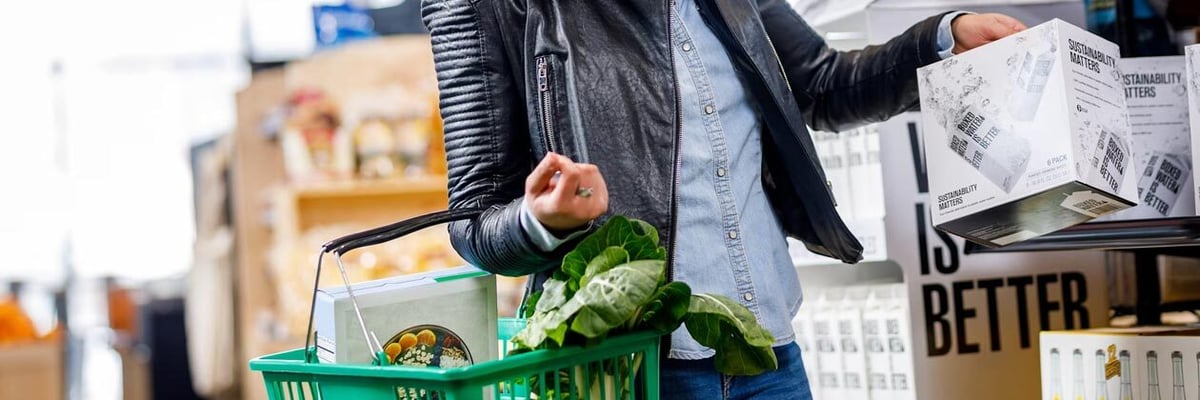Author: Ben Hartman | September 24, 2025 | 3 Min Read
Survey Finds Most Americans are Confident in the Safety of Food Ingredients - But Who Do They Want in Charge?

More than 7 out of 10 Americans are either very confident (25%) or somewhat confident (45%) in the safety of the ingredients in the food and beverages they purchase, according to a new survey. The survey also found that 26% of Americans are either not too confident (19%) or not at all confident (7%) in the safety of the ingredients.
The survey also found that more than half of Americans (57%) believe the federal government should be responsible for evaluating the safety of food ingredients, but only 51% believe that the federal government has evaluated the safety of food and beverage ingredients. Of the remaining 49%, 24% said they do not think the U.S. federal government has assessed the safety of food ingredients.
The survey found that 46% of respondents believe the onus is on manufacturers to ensure safety, and 45% say they believe that the suppliers of the ingredients in those products should be responsible for ensuring safety. Over a third (34%) said they believe that state governments should be responsible for evaluating food ingredient safety.
“Trust must be earned”
Titled “Americans’ Perceptions of the U.S. Food and Drug Administration’s GRAS Program”, the survey carried out by the International Food Information Council (IFIC), polled a total of 1,002 U.S. consumers in July 2005 and was focused on determining their knowledge of the Food and Drug Administration's Generally Recognized as Safe (GRAS) designation for food ingredients.
According to the FDA, the term GRAS “is based upon the application of generally available and accepted scientific data, information, or methods, which ordinarily are published, as well as the application of scientific principles, and may be corroborated by the application of unpublished scientific data, information, or methods."
“Trust in our food supply cannot be taken for granted—it must be continually earned,” said IFIC President & CEO Wendy Reinhardt Kapsak, MS, RDN.
“With growing consumer demand for transparency and accountability in how food is produced and regulated, we have a real opportunity to improve how we communicate about safety, from ingredients to recalls. With September marking National Food Safety Education Month, there’s no better time to elevate this conversation.”
“Americans want more transparency"
The survey found that among respondents who had heard of the GRAS program, nearly two in three (65%) believe it is either very effective (25%) or somewhat effective (40%). Only 16% said they believe it to be somewhat or very ineffective.
The authors of the survey note that the FDA regulates about 80% of the U.S. food supply, partly through the GRAS program. Under the GRAS program, manufacturers can add a substance to food products when there is widely known scientific evidence that it is safe.
The findings of the survey were arguably more encouraging than those of an IFIC survey published in July that found that only 55% of Americans are very confident (11%) or somewhat confident (44%) in the safety of the U.S. food supply.
“Americans are clearly asking for more transparency and collaboration across the food system,” Wendy Reinhardt Kapsak, MS, RDN, IFIC President & CEO, said upon release of the report.
“We must meet this moment with credible information, and a renewed commitment to building trust through clear and consistent communication.”
What do Americans Think about Food Safety Recalls?
Also in September, the IFIC released the results of an online survey that assessed the knowledge and attitudes of U.S. consumers towards food recalls. Of the respondents, 3 in 4 said they believe that food recalls are on the rise, and the majority hear about food safety recalls through the media.
The respondents stated that they believe that meats, poultry, seafood, fruits, and vegetables are the foods most often involved in recalls, and almost half believe that federal government agencies are responsible for informing the public about recalls.
Two-thirds of the respondents said that they would be interested in signing up for text message alerts to inform them about new food recalls.
“Media is often an effective channel for food recall information today, yet Americans don’t see it as responsible for delivering the message. That disconnect is a clear call to action for greater stakeholder collaboration to make food recall communication faster, more effective, and more targeted,” said Kris Sollid, IFIC Senior Director for Research & Consumer Insights.
Contributors

Ben Hartman
From HACCP certification to the basics of hygiene, our on-demand courseware has you covered.










